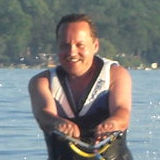Archive for the ‘misc’ Category.
May 30, 2003, 2:45 pm
Michael Malone: The Empire of Ants:
This cycle is the endless vacillation between centralization and decentralization. This wave affects every part of the modern, tech-driven corporation, from products to organization charts. If you’ve been around this industry any length of time, you know what I’m talking about.
April 9, 2003, 12:18 pm
Dean’s World: What do over 2,600 climate scientists have in common?
2,660 physicists, geophysicists, climatologists, meteorologists, oceanographers, and other environmental scientists (so far) have signed a petition saying that global warming hysteria is pseudoscientific baloney. They’ve been joined by an additional 5,017 chemists, biochemists, biologists, and other life scientists, and over 10,000 other scientists, attached to major universities and research organizations around the world. Yet if you went by what “environmental” activist groups like Greenpeace, Sierra Club, or the so-called “Environmental News Network” tell you, you’d think this petition, and others like it, never existed.
The Oregon Petition reads, in its entirety, as follows…
We urge the United States government to reject the global warming agreement that was written in Kyoto, Japan in December, 1997, and any other similar proposals. The proposed limits on greenhouse gases would harm the environment, hinder the advance of science and technology, and damage the health and welfare of mankind.
There is no convincing scientific evidence that human release of carbon dioxide, methane, or other greenhouse gasses is causing or will, in the foreseeable future, cause catastrophic heating of the Earth’s atmosphere and disruption of the Earth’s climate. Moreover, there is substantial scientific evidence that increases in atmospheric carbon dioxide produce many beneficial effects upon the natural plant and animal environments of the Earth.
The petition was put together by Dr. Frederick Seitz, the former President of the U.S. National Academy of Sciences. Thousands of qualified scientists have signed it, and more are signing all the time. If you’re a qualified scientist or meteorologist who’d like to sign the petition yourself, or want to see a list of all the signers, click here to go to the web site run by the Oregon Institute of Science and Medicine, which is sponsoring the initiative.
The Oregon Petition is not the only such petition signed by scientists, either. Over 4,000 scientists from 106 countries, including 72 Nobel Prize winners, have signed the Heidelberg Appeal. This petition, issued in response to the Earth Summit in Rio de Janeiro back in 1992, warns against “the emergence of an irrational ideology which is opposed to scientific and industrial progress and impedes economic and social development.” They further warn “the authorities in charge of our planet’s destiny against decisions which are supported by pseudoscientific arguments or false and nonrelevant data.”
March 7, 2003, 1:21 pm
Doc Searls and David Weinberger: World of Ends:
When it comes to the Net, a lot of us suffer from Repetitive Mistake Syndrome. This is especially true for magazine and newspaper publishing, broadcasting, cable television, the record industry, the movie industry, and the telephone industry, to name just six.
…
Fortunately, the true nature of Internet isn’t hard to understand. In fact, just a fistful of statements stands between Repetitive Mistake Syndrome and Enlightenment…
…
The Nutshell
1.
The Internet isn’t complicated
2. The Internet isn’t a thing. It’s an agreement.
3. The Internet is stupid.
4. Adding value to the Internet lowers its
value.
5. All the Internet’s value grows on its
edges.
6. Money moves to the suburbs.
7. The end of the world? Nah, the world of
ends.
8. The Internet’s three virtues:
a. No one owns it
b. Everyone can use it
c. Anyone can improve it
9. If the Internet is so simple, why have
so many been so boneheaded about it?
10. Some mistakes we can stop making already
February 25, 2003, 7:38 pm
Polymer Tactile Sensors
“According to a short article
on betterhumans.com, the latest thing in android skin is the polymer
tactile sensor. Also known as “smart skin”, the sensor is an
inexpensive, flexible polymer material that can conform to the shape of
the robot and provides high spatial resolution and sensitivity. Robots
with smart skin will be able to build maps of tactile contact that can
be used to detect slippage of gripped objects and shape recognition when
touching objects. Research on polymer tactile sensors is being carried
out by Jonathan
Engel at the University of Illnois’ Micro Actuators, Sensors,
and Systems Group (MASS).”
February 19, 2003, 1:46 pm
New York Times – free registration required Electronic Tracking System Monitors Foreign Students.
Mandated after terrorists first bombed the World Trade Center a decade ago and financed after they destroyed it, a vast new electronic tracking system became the central element on Saturday in the government’s effort to keep tabs on nearly a million foreign students and scholars in this country.
Through the system, the Student and Exchange Visitor Information System, or Sevis, schools, colleges and universities will send the federal government the names, addresses, courses and majors of foreign students, as well as information on any disciplinary actions against them.
Institutions that the government has not yet certified to log on to the system may no longer enroll foreign students.
“This is part of a national strategy for the national security of the United States — not the end-all and be-all, but a part of that,” said Christopher Bentley, a spokesman for the Immigration and Naturalization Service.
[ … ]
Given Sevis’s instant nature, “there’s no room to correct the record for errors,” said Robert J. Locke of the University of North Carolina. “That’s our biggest fear in the implementation of this, that students and scholars may unwittingly fall between the cracks and become illegal.”
[Privacy Digest]
February 14, 2003, 1:51 pm
Fun: The Flash Mind Reader, and how it works (try to figure it out yourself first though).

